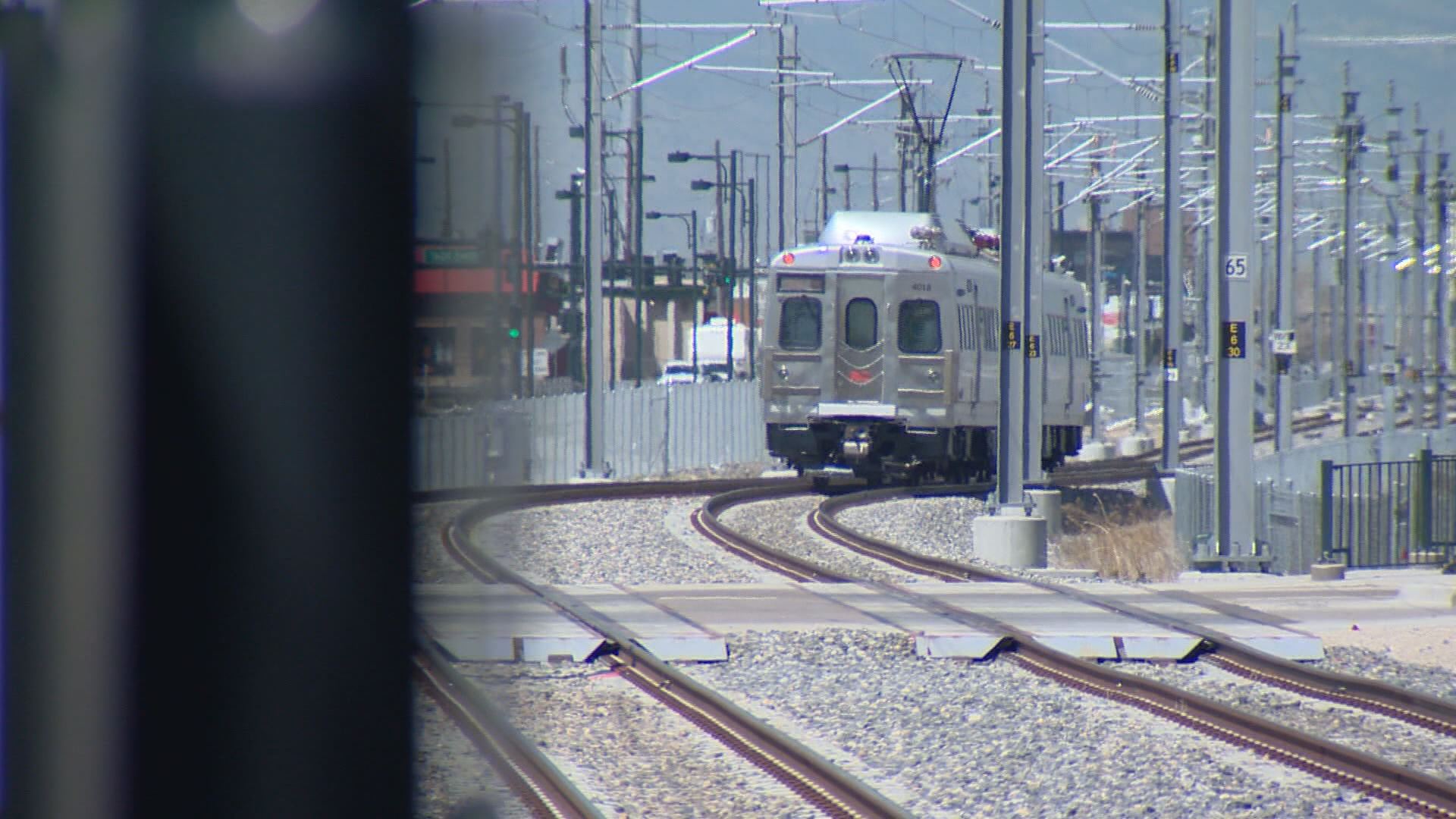The Regional Transportation District turned in a pile of new documents this week, including testimonies, charts and pictures, which are meant to convince Colorado’s Public Utilities Commission to finally give their trains the all-clear.
The biggest point of contention is the timing at which the A Line’s crossing gates come down and stay down under the operating system, the federally-mandated Positive Train Control. The A Line was the first in the country to have PTC built into the train.
The PUC - the state regulatory board - has approved a specific number of seconds that the gates should be down at each crossing on the A Line. Each crossing is different. At Steele Street it's 30 seconds, and at Sable it's 36 seconds.
RTD admits that the timing of its crossing gates doesn’t always fall within regulation; the gates may fall at different times, for example, because the PTC system detects speeding, or because something is on the tracks.
Federal regulators have already said it’s OK that the gates stay down for as much as 20 seconds longer than expected. RTD wants the state board to stop expecting the gates to fall within their limits, and agree that the system is safe to use without guards at each crossing.
In one, 17-page document, General Manager and CEO Dave Genova says he wouldn’t even be asking for approval of the A and G Lines for a second time if there was anything wrong with them.
He writes, “I would not allow RTD to see this approval from the Commission – in fact I wouldn’t allow our commuter rail system to operate and serve the public – if I had any concern about its safety.”
RELATED: RTD G Line testing resumes
Genova goes on to say that he cannot guarantee that an accident will never happen, and it’s “impossible” to do so. However, he’s confident the system is secure and it would be pointless to replace it.
"I cannot justify the expense of millions of additional dollars to try some other approach to grade crossing systems, whether it is a new system or the continued use of crossing attendants. I see no real benefit – only significant, unnecessary, and potentially project-crippling costs."
Others including the project director behind the A Line, and an engineer with decades of railroad experience, also submitted testimony on RTD’s behalf.
If you really want to nerd out and read any of it, you can see the full list of documents here.
The PUC will review all the documents. If no one else files testimony, a hearing will be scheduled for mid-February.
But other groups that have been frustrated with the way the lines operate, like the cities of Aurora or Arvada, have the right to submit a rebuttal. These groups have until Feb. 2 to notify a judge if they intend to file their own testimonies, and they’d have to do so by Feb. 16. The hearing would then take place in mid-March.


